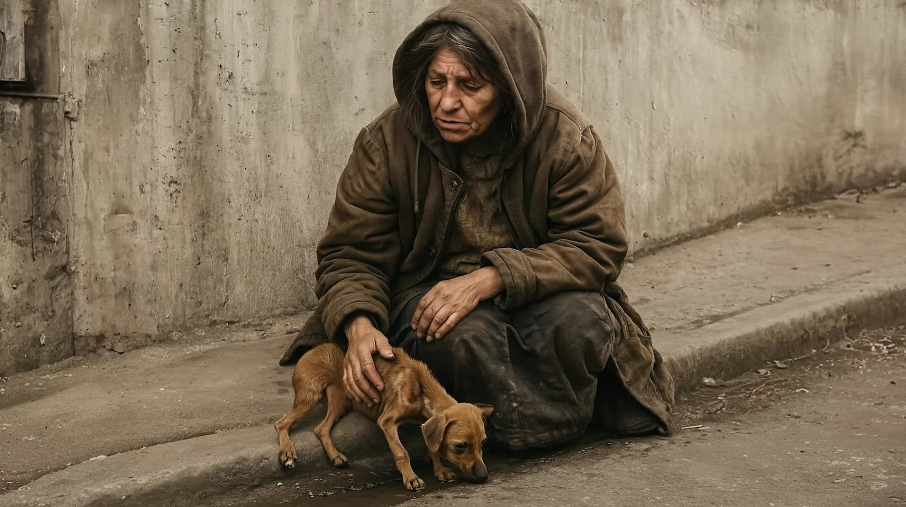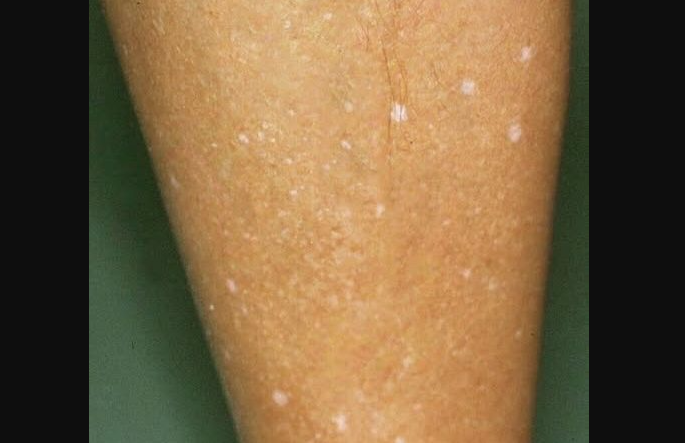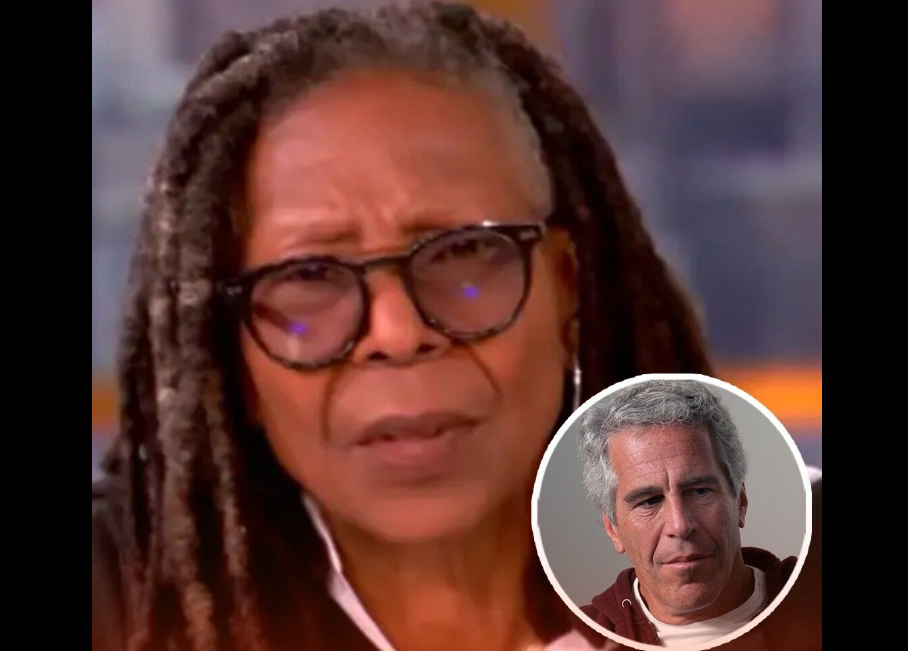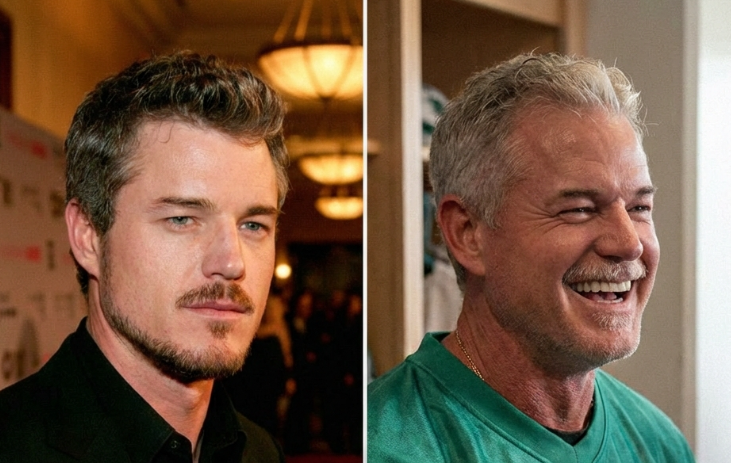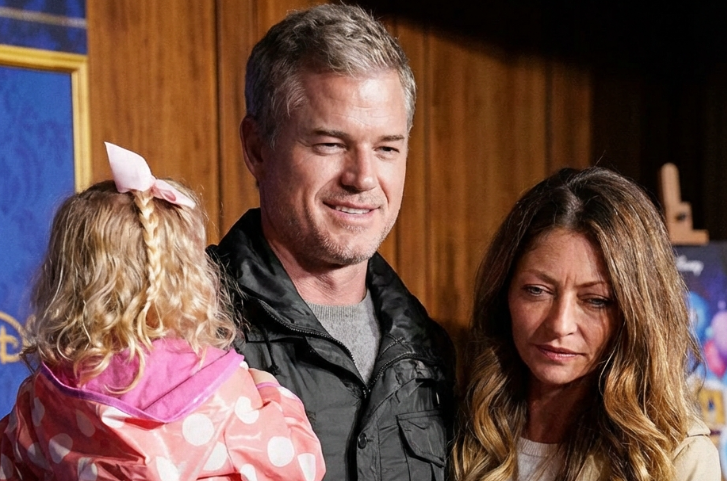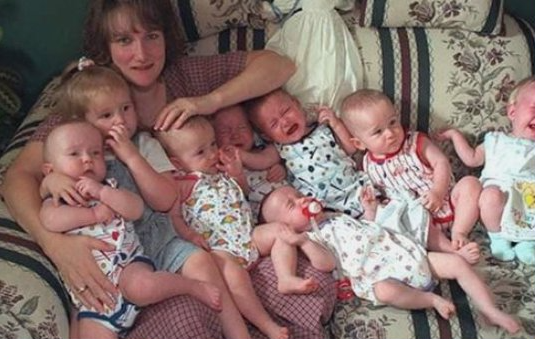Rain had soaked through her sweatshirt hours ago.
Her shoes made that squelching sound every step she took, but she persisted, one block at a time, hoping the next streetlight might offer warmth, or sustenance, or relief from the pain.
She hadn’t eaten since yesterday morning.
That half-slice of toast she’d discovered in a trash can behind the diner?
Consumed before noon.
She told herself the hunger would subside, but now it felt like something was tearing at her insides.
Her head swam.
Her knees faltered.
Then she heard it.
A soft, panicked whimper.
She turned and saw the tiniest puppy curled in the gutter, half its body saturated and shivering so intensely its ribs fluttered.
One paw was tucked awkwardly beneath it, as if it had fallen and was unable to move.
She should have continued walking.
She needed to continue walking.
Yet she knelt anyway.
“It’s okay,” she whispered, extending her hand.
“I’m lost too.”
The puppy did not resist.
It simply rested its damp muzzle against her hand as if it had been awaiting her.
She wrapped it in the one dry corner of her hoodie and cradled it close, even though her arms were trembling.
She did not know her next course of action.
The shelters were full.
The bus drivers no longer permitted her to ride.
The man outside the corner store had already forbidden her return.
Still, she began walking again—this time with the puppy nestled against her chest.
Then, precisely as she turned down the alley behind the old pharmacy, her legs completely gave out.
She impacted the pavement hard.
For a moment… she remained motionless.
The puppy emitted a weak yelp and nudged her cheek, as if sensing her decline.
Her eyes fluttered open, barely.
She let out a groan, attempting to command her arms to push herself upright, but her body refused to obey.
The world tilted sideways.
Then darkness crept in from the periphery.
She did not recall losing consciousness.
But when she awoke, the puppy was gone.
Her heart lurched.
She pushed herself to her elbows with a strength she didn’t know she possessed and called out, “Hey!
Hey, little one!”
Nothing but silence and the sound of drizzle tapping on broken pavement.
Tears welled in her eyes before she could stop them.
Not for herself.
But because for one brief moment, that puppy had made her feel less invisible.
And now it was gone too.
She curled back onto her side, wrapping her arms around her stomach to quiet its rumbling.
She did not weep.
She simply allowed the rain to strike her face as if it belonged there.
That’s when she heard footsteps.
Heavy ones.
Not the kind one disregards when accustomed to sleeping with one eye open.
She sat up rapidly, heart racing.
A man in his sixties stood there in a yellow rain poncho, a grocery bag dangling from one hand.
He resembled someone’s grandfather.
Not threatening, yet unfamiliar.
“Are you well?” he inquired, his voice low but not unkind.
She did not answer immediately.
Her mind raced.
Should she fabricate a story?
Request money?
Pretend she was merely resting?
“I… I simply fell,” she mumbled.
He nodded, glanced at her clothes, the bruises on her knees, and the empty sidewalk behind her.
Then he stated something unexpected.
“Did you misplace a puppy?”
Her head snapped up.
“You saw it?”
He crouched down slowly and pulled back his poncho.
Beneath it, wrapped in a small towel, was the shivering bundle of fur.
“I heard it yapping around the corner.
I assumed someone had to be searching for it.”
The girl’s shoulders sagged in relief.
She extended her arms and he gently placed the pup back into them.
It nuzzled her as if it had never departed.
“Poor creature’s freezing,” the man muttered.
“You too.”
She gave a half-smile, uncertain what else to say.
“I’m Ron,” he added.
“And you appear to require a hot meal.”
Her instincts screamed a warning not to trust him.
But her stomach clenched so tightly it almost made the decision for her.
“I’m… I’m Tessa,” she said softly.
Ron stood and extended the grocery bag.
“Soup.
And some bread.
I was returning to my apartment.
You and the pup can join me.
It is merely dinner.
You owe me nothing.”
She hesitated.
People did not offer assistance without expecting something in return.
However, people did not usually return lost puppies either.
She nodded, a single affirmation.
His apartment was only a block away, above a closed hardware store.
It smelled faintly of old books and cedar.
A radiator clanked in the corner, laboring to warm the small space.
He gave her a towel, dry clothes—his late wife’s, he said—and left her alone to change.
The soup was humble.
Chicken noodle, from a can.
But it was hot, and it filled the emptiness within her that had not felt full in weeks.
The puppy ate too, greedily lapping up some softened kibble Ron had saved from his neighbor’s dog’s visits.
They did not converse much that night.
Tessa was too exhausted.
Too overwhelmed.
But before she curled up on the old couch with the puppy nestled against her, she posed one question.
“Why did you help me?”
Ron did not hesitate.
“My daughter,” he said.
“She ran away when she was seventeen.
I never had the opportunity to assist her.
I thought perhaps I could help someone else’s.”
Tessa did not know what to say.
So she uttered thanks.
Quietly, yet sincerely.
The days that followed offered a strange comfort.
Ron did not pose excessive questions.
He allowed her to stay.
Gave her space.
Occasionally, they ate together.
Occasionally, they did not.
He offered her minor chores—sweeping the stairwell, organizing boxes in the attic—and provided a few dollars sporadically, always ensuring it did not feel like charity.
Tessa found herself speaking more.
About the group homes.
The conflicts.
The poor choices and the individuals who never granted her a second opportunity.
Ron listened.
Never judged.
The puppy, whom she named Bean, recovered swiftly.
He followed her everywhere, a wagging, yipping shadow.
One morning, Ron handed her a folded flyer.
It was for a community animal shelter seeking volunteers.
“They need assistance walking dogs,” he stated.
“And you possess a knack with the little ones.”
Tessa smiled.
“Do you truly believe they would permit someone like me to assist?”
“I believe they would be fortunate to have you.”
She went the next day, Bean accompanying her.
It was not glamorous.
Poop bags, muddy paws, barking for hours.
But she felt needed.
After prolonged periods of feeling like a ghost, that sense of purpose was everything.
Weeks passed.
Then months.
Tessa began to transform.
Her eyes held less fear.
Her steps grew firmer.
She even secured a small part-time job at the shelter, cleaning kennels and restocking supplies.
Ron beamed the first time she handed him an envelope containing rent money.
“You’re establishing roots,” he stated with a proud nod.
One day, while walking Bean through the park, she recognized a familiar face sitting on a bench.
It was Denise.
A girl she’d shared a shelter bed with over a year prior.
Denise had vanished after a troubling night involving police and a stolen bicycle.
Tessa sat beside her.
They conversed for hours.
When she mentioned her current living situation and the older man who had assisted her, Denise laughed and remarked, “Indeed, you were fortunate.
No one typically offers such generosity to girls like us.”
Tessa smiled, but her heart sank.
Denise spoke the truth.
Most individuals are not rescued.
So that night, she made a resolution.
She informed Ron she wished to resume her education.
Only GED classes at the community center.
He did not say much.
He simply nodded and provided her with a pen and a notebook the next morning.
When she passed her first test, she wept in the bathroom alone.
Then she texted Ron, “I succeeded.”
He replied, “I knew you would.”
By the end of the year, Tessa had officially graduated from high school.
The animal shelter offered her a full-time role with training to become a vet tech.
And one Saturday morning, while distributing flyers at an adoption event, a family approached her.
They were seeking a puppy.
Tessa knelt down and indicated a squirming terrier.
However, the family’s young daughter tugged at her sleeve.
“What about him?” she inquired, pointing to Bean.
Tessa froze.
“Oh no,” she said with a laugh.
“He is not available for adoption.
He is mine.”
The girl appeared disappointed, yet nodded.
Tessa glanced at Bean, now curled contentedly in the sun, his head tilted as if he knew they were discussing him.
And in that moment, she realized something.
She possessed a life now.
Not a flawless one.
But an authentic one.
She had a home.
She had purpose.
She had someone who believed in her when no one else did.
And all of it began because of a lost, broken puppy in the rain.
That night, she recorded something in her notebook.
“Sometimes the entity you pause to save ultimately saves you.”
It became her guiding principle.
Years later, Tessa established a small nonprofit.
A halfway house for young women transitioning out of foster care.
She named it The Second Paw, in honor of Bean.
Ron was present at the ribbon-cutting ceremony.
So was Denise—now a staff member.
And Bean, a little older, still wagging his tail as he had the day they met.
Tessa stood on the porch and observed the young faces watching her.
Nervous, weary, yet hopeful.
And she imparted to them, “You are not broken.
You are merely bruised.
And there is still time for discovery.”
Because being lost does not imply perpetual displacement.
And occasionally, when you are at your lowest point, the universe dispatches something small.
Wet.
Shivering.
Yet replete with hope.
If this narrative resonated with you, share it.
Perhaps someone needs to hear that life can still offer unexpected blessings.
